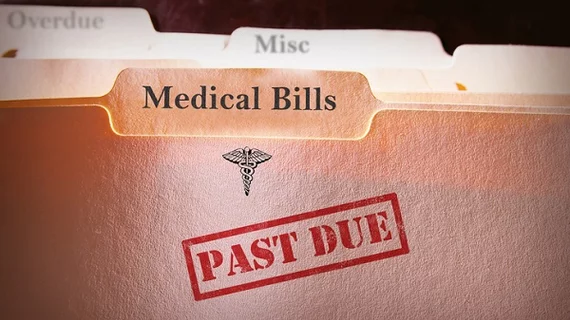Radiologists voice support for lawsuit against Biden administration
Radiologists and other specialists are professing their support for one state medical association’s ongoing lawsuit against the U.S. Department of Health and Human Services.
The American College of Radiology, American College of Emergency Physicians and American Society of Anesthesiologists voiced their concerns in a recent court brief, which they also promoted Monday. All three societies—representing specialties often involved in surprise medical billing—want a U.S. Court of Appeals to uphold a district court’s recent decision.
The back-and-forth relates to one of several lawsuits filed by the Texas Medical Association, challenging the Biden administration’s implementation of the No Surprises Act. Both TMA and the three specialty societies contend that the July 2021 rule implementing the landmark legislation failed to honor Congress’ original wishes.
Instead, the rollout has placed undue emphasis on the “qualifying payment amount,” a figure arbitrarily determined by payers, for the basis of negotiating physician payment rates.
“The departments’ [of HHS, Labor and Treasury] methodology from the July rule and their other guidance will depress payments for the anesthesiology, radiology and emergency services of [the three societies’] members by empowering insurers to lower in-network rates, which, in turn, will depress out-of-network rates,” ACR and the two other associations wrote in their March 20 amicus brief. “This under-compensation of out-of-network care will threaten the viability of smaller and independent physician practices, and the inevitable result will be the consolidation or closure of these practices. This will lead to fewer services in rural and other underserved communities, which ultimately will harm the care of patients in those areas struggling with accessibility to quality treatment.”
This is the fifth such court briefing jointly filed by ACR et al. in the ongoing Texas surprise-billing court saga. All three societies banded together in recent years to advocate about NSA-related issues, with their member physicians facing similar challenges. In August, radiologists, anesthesiologists and emergency docs also jointly praised a district court’s decision to vacate a 600% fee increase for physicians assessing the independent dispute resolution process under the legislation. This was brought about by a separate suit from the Texas Medical Association.
All three societies emphasized they support No Surprises Act provisions that shield patients from receiving unexpected medical bills. The district court decision they are advocating to uphold does not impact such consumer protections, ACR et al. noted.
You can read previous coverage about the NSA and the ongoing Texas lawsuits at the links below. Radiology provider Envision Healthcare also recently submitted comments to the administration about ways to enhance the NSA’s dispute-resolution process.
“The flawed implementation has resulted in unique challenges for the provider community while giving health insurers the upper hand,” Envision wrote, echoing ACR’s concerns. “In addition, it has led to a growing backlog of unresolved disputes and significant delays in payments to providers.”

